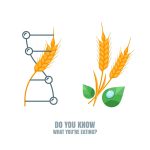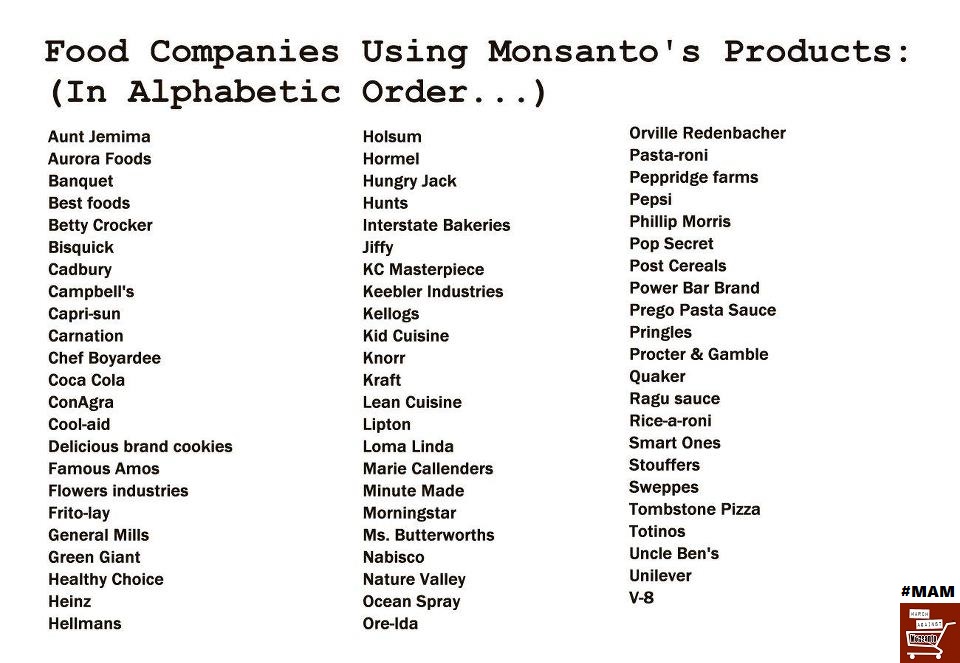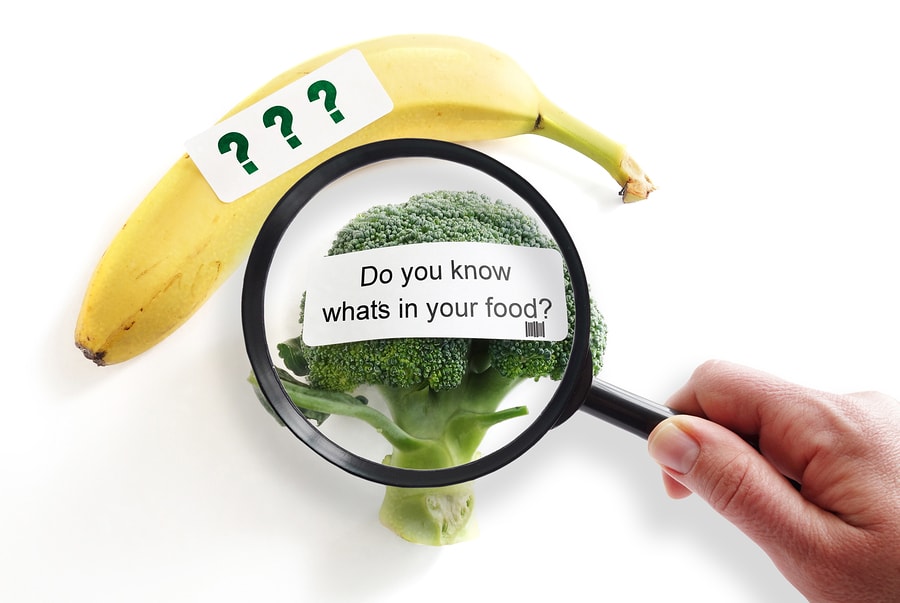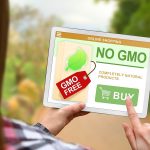Aside from choosing a well-balanced seasonal diet, you should also consider where your food comes from. This often leads to the question, what are GMO foods? Also called genetically modified organisms, GMOs are ingredients that are not found naturally.
There are many different foods that can have GMOs, and you might not even know it. While this might not keep you from eating certain foods 100 percent of the time, you should be aware of bioengineered food ingredients and understand what impact they might have on your health.
What Are GMO Foods?
In the world of agriculture, Scientists created techniques to create bioengineered foods to make them resistant to pests so they can produce crops that grow larger, and faster. This can also make them more resilient in a wider range of climates.
Certain varieties of fruits and vegetables can withstand more extreme climates or sudden changes in weather like droughts or flooding.
Are GMO Foods Safe?
There are in-depth concerns going on around the world about the safety of genetically modified foods. And rightly so because a large percentage of farmers, consumers, and healthcare specialists are skeptical when food manufacturers alter the genetic makeup of food. (What is in good food? Don't count on food manufacturers to tell you the truth!)
The American Academy of Environmental Medicine urges medical professionals to advise their patients to take a non-GMO diet. They cite animal studies showing organ damage, gastrointestinal and immune system disorders, accelerated aging, and infertility. Studies show how genetically modified food can leave neurotoxins behind inside us, causing long-term health issues.
For example, genes inserted into GM soy crops can transfer into the DNA of bacteria living inside us. Toxic insecticide produced by GM corn was found in the blood of pregnant women and their unborn fetuses.
Because of these health risks, over 60 countries have banned or placed restrictions on the cultivation and sale of GMO crops. Sadly, the US is not one of them.
Other Implications of GMO Foods
There are more real-world effects that come with genetically modifying food.
First off, alterations to food make them patented intellectual property owned by the company which produces them. This gives the company the right to dictate how their property is used, where it can be sold, and which products can be used on the crops without causing damage or loss.
It also prevents farmers from producing their own seeds from those crops. (really? who owns nature?)
One of the most disturbing is the ability of GM crops to cross-breed with and choke out other strains of plants. It is impossible to fully clean up our contaminated gene pool. This impact is huge and threatens the health of future generations because GMOs contaminate forever!
The Future of GMOs
But as long as a skeptical majority exists, there will be obstacles to GMO activity as people fight to preserve traditional farming and food production methods.
How Can You Avoid Foods with GMOs

Now let’s take a moment to discuss avoiding foods that might contain GMOs. Discovering which foods contain GMOs isn’t always easy, but it's a rewarding experience to know that you are capable of making a real choice. Not only that, but knowing can also guarantee that you will be getting healthy and natural food for your family.
Buy Products That Are Non-GMO Certified
If you’re looking for products that are Non-GMO, one of the best ways is to see if they’re non-GMO certified. There will usually be a seal near the ingredients, or proudly and prominently displayed on the front of the packaging. This means that the USDA has investigated the product, and allowed it to be sold after reaching a standard.
Buy Foods from Non-GMO Companies
One very blanket way to make sure that nothing you eat is GMO would be to buy foods that come from companies that never use GMO foods, to begin with.
They are likely to be certified as organic or non-GMO. These companies stick to farming methods that are more consist of modern versions of traditional farming.
A significant portion of these companies will only have products in specialty stores. But with the rising interest in holistic medicine, veganism, and organic foods, these types of stores are becoming more financially accessible to people.
Cook Your Own Meals
Don't ever underestimate the power of cooking for yourself and your family. This is one major way that you can always know exactly what you’re eating.
A combination of prepackaged organic foods and organic vegetables you buy can help you to quickly prepare very healthy meals for yourself and loved ones.
Consider having a small garden to grow specific fruits and vegetables that you love to use. That way, you can reduce the cost of buying various organic foods, and keep a good source in your own literal backyard.
Hidden GMO Ingredients to Avoid

As people are starting to research and reject genetically modified foods, awareness about GMOs in food is at a high point.
What is alarming is that many of us are discovering that GMOs have unknowingly made their way into our cupboards and refrigerators. You may ask how that is possible?… but the answer is simple. They got in through ingredients in many of the pre-made foods that you enjoy.
Have you been looking to find out which foods come from GMO food sources?
Thankfully, there is information available to keep you in the know.
Top GMO Foods
Corn
Soy
- Soy flour
- Soy isolates
- Soy milk
- Soy oil
- Soy sauce
- Soy protein
- Soy protein concentrate
- Soy protein isolate.
Sugar Beets
Half of the sugar produced in the U.S. comes from the sugar beet, a yellow-white crop related to red beets. And there are more than one million acres of sugar beets cultivated every year in the United States. 95% of farmers grow genetically modified sugar beets!
What you may not know is that beets are superabsorbers. If they are nutritious, the beets will absorb them. If it is toxic, the beet will absorb those things as well. (Buy organic cane sugar products only!)
Cooking Oils
Many cooking oils are produced with genetically modified crops.
The most common oil currently used is canola oil (rapeseed oil), which is associated with a variety of disorders and decreased health. Canola oil is often used in the production of fried foods. It is considered one of the least natural oils used today. Steer clear of canola oil!
Other oils that you will want to be aware of are cottonseed oil and vegetable oil. When you see these on a label, that is evidence of a GMO source.
Milk and Dairy
Cows that produce milk are given growth hormones that change the way they grow. These growth hormones often speed up the process of growth and come with side effects. Milk is heavily processed so that it more resembles what most people consider to be normal milk.
If you are considering going dairy-free, here's a post about How to Go Dairy Free with loads of non-dairy alternatives.
Brands That Use GMOs

Unfortunately, there are some brands you know and love that use GMO ingredients. Here is a brief list of some of the more popular brands you may want to avoid:
Kellogg’s
There are quite a few packaged and cereal brands that use GMOs, including Kellogg’s brand. They use a lot of GMO corn in their breakfast cereals especially.
Nestle & Hershey’s
Two popular chocolate brands that contain GMOs are Nestle and Hershey’s. Nestle not only uses GMOs in their candy bars, but their baby food as well.
General Mill’s
Another cereal and packaged food brand that uses GMOs is General Mills. However, they now carry some oats without GMOs, so read your labels closely.
Nestle/Gerber
This company puts GMOs in baby food! Yikes! Formulas like Good Start contain GM soybean oil, GM soy lecithin, and GM maltodextrin, as well as corn syrup from GM crops.
Pepsi & Coca-Cola
Both Pepsi and Coca-Cola have been shown to use some GMO ingredients.
Wait! There's more!

Brands That Don’t Use GMOs

Amy’s Kitchen
All foods are GMO-free, including soup, chili, and frozen meals.
Blue Diamond
The Almond Breeze almond milk is certified as non-GMO
Bob’s Red Mill
This is a family-owned company that never uses GMOs.
Bragg Foods
Apple cider vinegar, salad dressings, olive oil, Liquid aminos.
Earth Balance
Look for their butter bread, peanut butter, mayonnaise, and soy milk
Eden Foods Organics
A wide variety of organic, GMO-Free products.
Earth’s Best
This is a natural and organic baby food manufacturer that does not use GMOs.
Garden of Eatin
Products made naturally with organic corn
Late July
Organic snacks including chips, saltine crackers, cookies
Lundberg Family Farms
Rice and rice-based products (chips, cereals, snack foods and more
Newman’s Own
Enjoy their entire line, including coffee, tea, pet food, salad dressing, oil, and snacks.
Nutivia
Hemp, coconut and chia superfoods
Mary's Gone Crackers
GMO, gluten-free healthy snacks
How to Avoid GMOs and Find non-GMO Sources
- The only label that guarantees food is 100% non-GMO are those with NON-GMO Project Verified
- Buy 100% organic products
- Buy meat from animals fed 100% organic feed or grass-fed
- Shop at your local farmer's market. Most produce is safe non-GMO except for corn, beets, radicchio, zucchini, and yellow summer squash
- Keep eating at restaurants to a minimum
- Avoid processed and packaged foods and beverages that are non-GMO
- Shop at places that carefully screen their products to ensure they do not carry any GMO foods





Nice post. I totally agree with you Such a very useful article. Very interesting to read this article. I tried everything to maintain a healthy weight but nothing worked. I would exercise daily and stick to an eating plan for a few weeks or months,
Many people are falling ill because of the food s they are eating. Many foods are prepared in such a way that is a health risk. We should be very careful about what we put in our foods especially when going to eat take outs. It does not matter how delicious the food taste the key is staying healthy at all times. What you are sharing will be a good help to so many people.
Thanks for taking the time to write Norman!